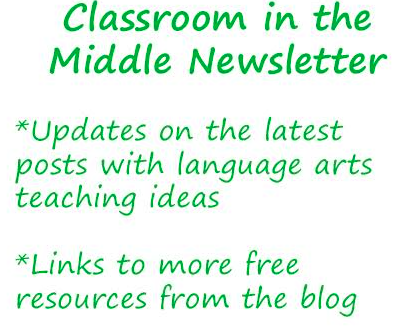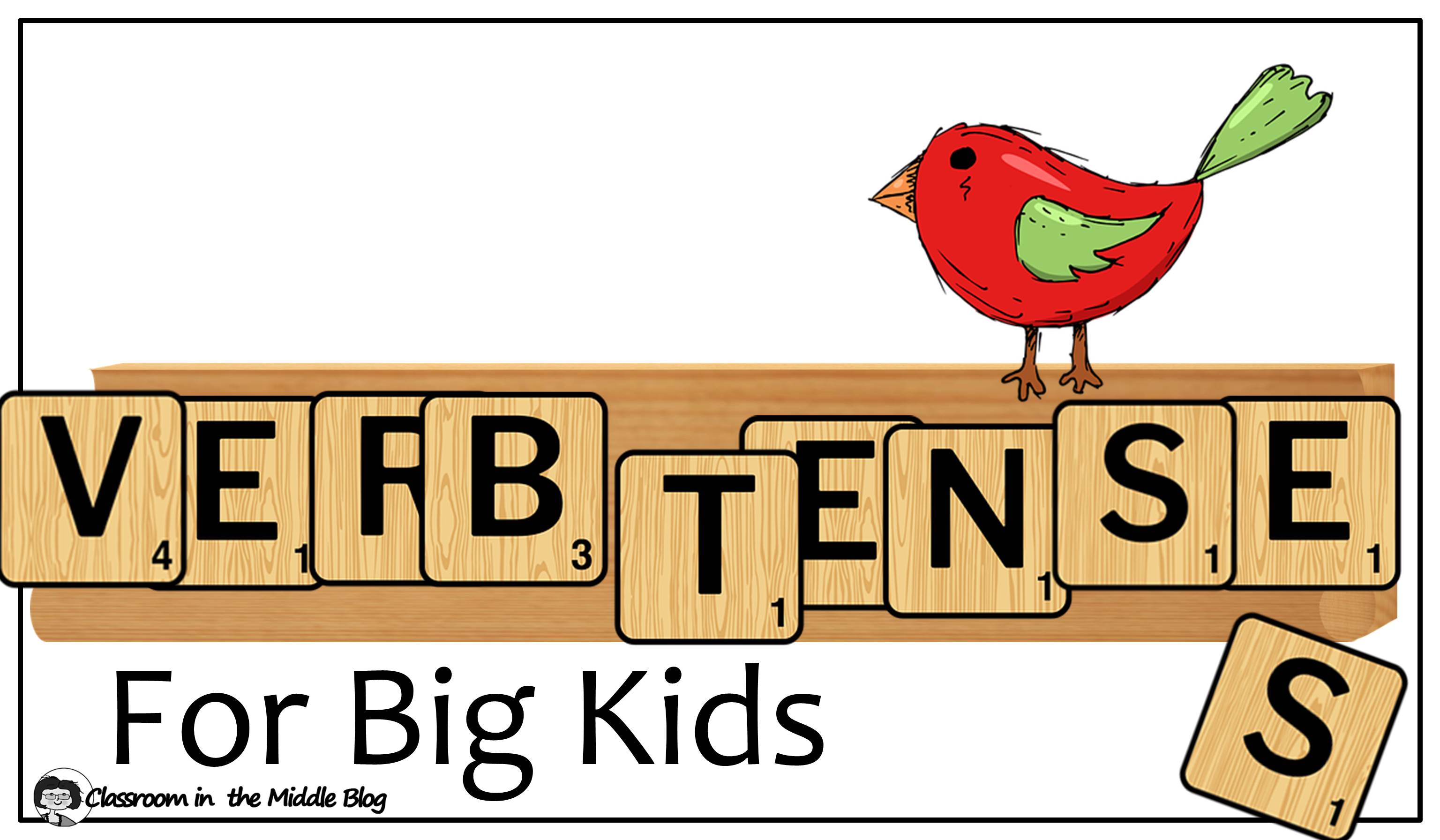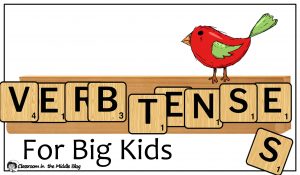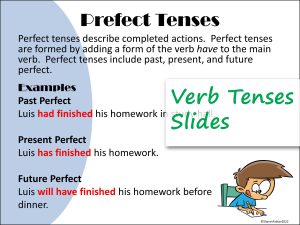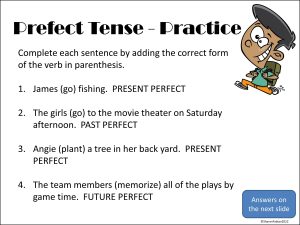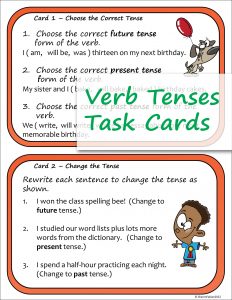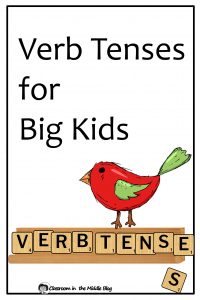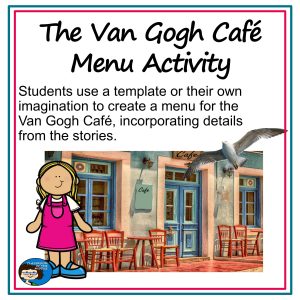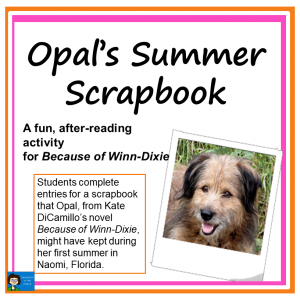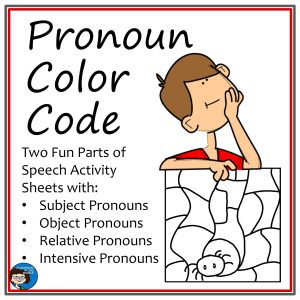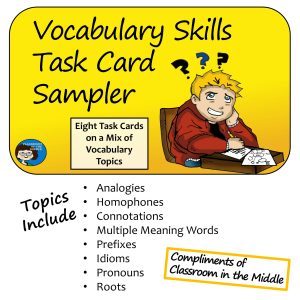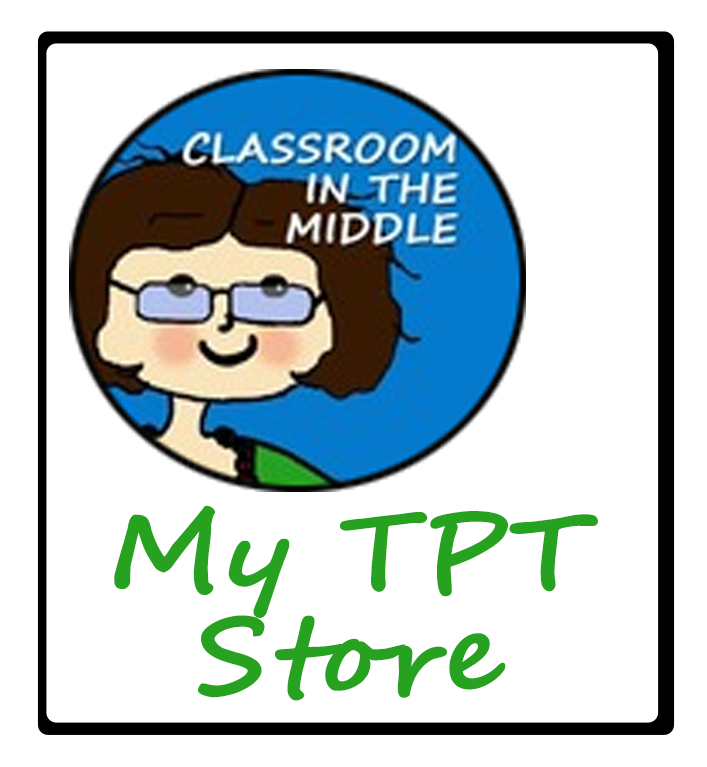Continuing my dive into parts of speech for middle graders, I’ve been looking into verbs and what middle graders need to know about them. Looking at the Common Core standards, I found two specific areas – a few verb tenses that they haven’t much covered yet and a related area – auxiliary verbs.
Since verbs are definitely among the “been there, done that” topics for middle schoolers as well as upper elementary kids, it’s a tricky topic (Just like many grammar topics for this age!) On the one hand, you know they need to review and practice certain basics such as subject and object pronouns. On the other hand, kids and teachers alike will probably be glad to move on to some new stuff.
The areas that I finally decided to incorporate into my parts of speech activities for verbs are all ones that are addressed in the Common Core Standards for upper elementary or middle school, specifically grades four through seven. They are:
- Verb Tenses
- Correcting Tense Shifts
- Progressive Verb Tenses
- Auxiliary Verbs
- Perfect Verb Tenses
Verb Tenses
First, kids probably need a reminder of just what tenses are. ( I can imagine kids wondering about verbs that have something to do with being nervous, or tense!) Also, irregular past tenses are an area that can always use some work. Whether they need to learn new irregular verbs or just how to spell the ones the ones they already know, these words are ones that will come up often and so the more irregular past tenses kids can master, the better.
Correcting Tense Shifts
In the middle grades, its all about incorporating grammar skills into their own writing. Now kids can begin learning to refine their writing by sticking to either present or past tense. Along the way, they will also learn that there are frequently reasons to shift tenses appropriately within a piece of writing, such as when a character is remembering a past action. Checking for tense shifts is a great topic for revising activities, whether they are short practice ones or a step in the writing process as students revise their own writing.
Progressive Verb Tenses
Kids use progressive verb tenses all the time (I was looking, I am looking, I will be looking); they’re common in everyday speech. But just as keeping their tenses consistent can be a problem, using progressives correctly in writing can also be challenging.
To understand just what the progressive tense is, kids can compare a simple past tense verb with a past progressive, for example looked versus was looking. What is the difference? Was looking describes an action that was continuous or ongoing.
Auxiliary Verbs
Modal auxiliaries – helping verbs such as can or must – are a fun grammar topic. Kids will enjoy seeing how many ways the meaning of one verb can be changed simply by adding different auxiliaries.
Add in a past tense versions of each, and also a negative for each one – could have or must not – and students will have lots of choices. A contest to see how many different ones they can come up with might be a fun activity! To follow up, discuss how each sentence is different from the others. Some of the possibilities for the verb dance are:
I can dance.
I may dance.
I must dance.
I could have danced.
I cannot dance.
I must have danced.
I must not have danced.
Etc.
Perfect Verb Tenses
Perfect verb tenses, which are formed by adding a form of the verb have to the main verb, are probably going to be the most difficult of the verb topics to cover. It can be difficult for kids to distinguish when the need to add the have versus when a regular past tense will do. It just takes practice, and they will be coming back to this topic in years to come as well.
To help kids understand the concept of perfect tenses, have them look at a verb such as finished. What is the difference between, “I finished my homework,” and “I had finished my homework.” You might use the word finished as soon as you are done, but you would only say had finished for a homework assignment that had been finished for a while. Maybe it is already packed safely away in your backpack ready to carry back to school. Had finished is in the past perfect tense, and it is only for actions that have been completed already.
The resources that I created for teaching this topic include a slide presentation, which includes review and practice questions for students to answer, and a set of task cards. Both cover both verb tenses and auxiliary verbs as outlined above. Here are examples of the slides:
Here is what the task cards look like. They are large cards, just two cards per page, that are designed for middle graders with plenty of content per card.
The Verb Tenses Task Cards come with both a digital version and a PDF for printing out. There is a choice of either the TPT Easel activity or Google slides for the digital version.
The slide presentation is a PowerPoint and also includes an Easel version as well.

